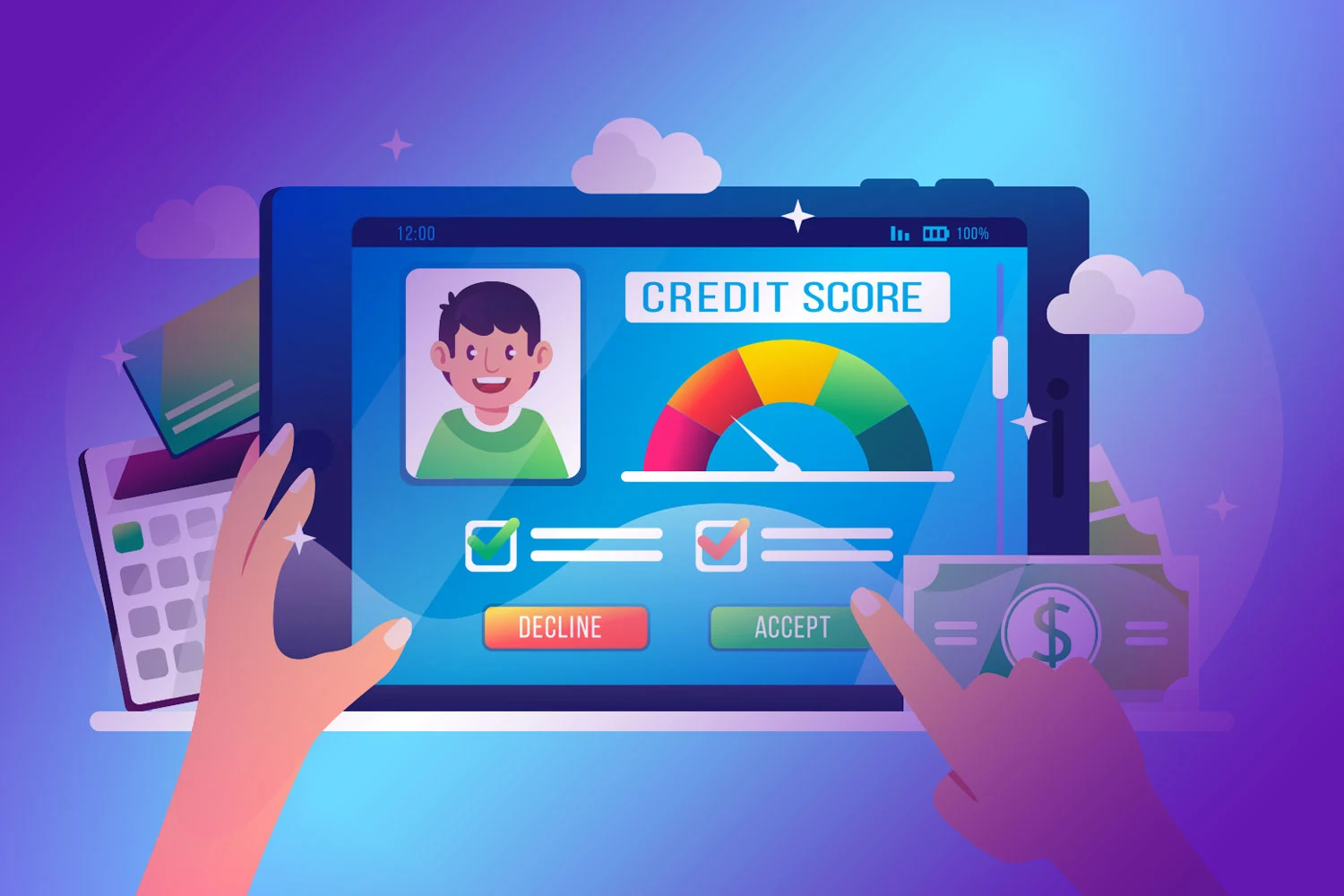- Home
- Bad Credit
- Bad Credit Loans: A Guide for Borrowers
Bad Credit Loans: A Guide for Borrowers
- Bad Credit, Personal Finances

Are you struggling with a poor credit score and need access to funds? You are not alone. Millions of people in the United States have poor credit, making it difficult for them to secure a loan or credit card. Fortunately, there are options available for those with bad credit, including bad credit loans. In this post, we will explore what bad credit loans are, how they work, and what you should consider before applying.
What Are Bad Credit Loans?
Bad credit loans are loans that are designed for people who have poor or limited credit history. These loans typically have higher interest rates and fees than regular loans because lenders see them as riskier. However, they can also help you improve your credit score if you make timely payments and manage your debt responsibly.
Types Of Bad Credit Loans
There are different types of bad credit loans, such as:
- Payday loans: These are short-term loans that you have to repay on your next payday. They usually have very high interest rates and fees and can trap you in a cycle of debt if you can’t afford to pay them back.
- Installment loans: These are loans that you repay in fixed monthly installments over a certain period of time. They usually have lower interest rates and fees than payday loans, but they can still be expensive and affect your credit score negatively if you miss payments.
- Secured loans: These are loans that require you to provide some form of collateral, such as your car or home, to secure the loan. If you default on the loan, the lender can seize your assets to recover their money. Secured loans usually have lower interest rates and fees than unsecured loans, but they also put your property at risk.
- Unsecured loans: These are loans that do not require any collateral, but they rely on your creditworthiness and income to qualify. Unsecured loans usually have higher interest rates and fees than secured loans, but they do not put your property at risk.
How Do Bad Credit Loans Work?
The application process for bad credit loans is similar to that of traditional loans, but with a few key differences. First, lenders will typically require proof of income and employment, as well as a valid ID and proof of residency. They may also require a credit check, although some lenders may be willing to provide loans without one.
Once approved, borrowers will receive the funds either in a lump sum or through installments, depending on the type of loan. It is important to note that bad credit loans typically come with higher interest rates and fees than traditional loans, so borrowers should carefully consider the cost of the loan before accepting it.
How To Apply For A Bad Credit Loan?
If you decide to apply for a bad credit loan, you should do some research and compare different lenders and offers. You should look for the following factors:
- Interest rate: This is the percentage of the loan amount that you have to pay as interest over the loan term. The lower the interest rate, the less you will pay in total.
- Fees: These are the extra charges that the lender may impose on you for processing, servicing, or late payment of the loan. The lower the fees, the less you will pay in total.
- Loan amount: This is the amount of money that you can borrow from the lender. The higher the loan amount, the more you will have to repay with interest and fees.
- Loan term: This is the duration of time that you have to repay the loan. The shorter the loan term, the less interest, and fees you will pay in total, but the higher your monthly payments will be.
- Repayment options: These are the ways that you can repay the loan, such as automatic withdrawal from your bank account, online payment, or check. You should choose a repayment option that suits your budget and convenience.
What To Consider Before Getting a Bad Credit Loan?
Getting a bad credit loan can be a helpful way to get access to cash when you need it urgently. However, it can also come with some risks and drawbacks that you should be aware of. Here are some things to consider before getting a bad credit loan:
- Can you afford it? You should only borrow what you need and what you can realistically repay with interest and fees. If you borrow more than you can afford, you may end up in more debt and damage your credit score further.
- Is it worth it? You should weigh the pros and cons of getting a bad credit loan versus other alternatives, such as saving up money, asking for help from family or friends, or selling some of your belongings. You should also consider the impact of getting a bad credit loan on your future financial goals and opportunities.
- Are there better options? You should shop around and compare different lenders and offers to find the best deal for your situation. You should also look for other ways to improve your credit score and qualify for better terms in the future, such as paying off existing debts, paying bills on time, or using a secured credit card.
What Are the Pros And Cons Of Bad Credit Loans?
Bad credit loans may seem like a quick and easy way to get cash when you need it, but they also have some disadvantages that you should consider before you apply. Here are some pros and cons of bad credit loans:
Pros:
- You can get approved even if you have bad credit or no credit history.
- You can get the money fast, usually within a day or less.
- You can use the money for any purpose, such as paying bills, emergencies, or personal expenses.
Cons:
- You may end up in more debt if you can’t afford to repay the loan on time or if you roll over the loan into a new one.
- You may damage your credit score further if you miss payments or default on the loan.
How Can You Improve Your Chances Of Getting A Better Loan?
If you have bad credit and need a loan, there are some steps you can take to improve your chances of getting a better deal. Here are some tips:
Check your credit report and score: You can get a free copy of your credit report from each of the three major credit bureaus once a year at annualcreditreport.com. You can also get your credit score for free from some websites or apps. Review your report for any errors or negative items that may be hurting your score, and dispute them if necessary.
Compare different lenders and options: Don’t settle for the first offer you get. Shop around and compare different lenders and types of loans to find the best one for your situation. Look at the interest rate, fees, terms, and requirements of each loan, and use a loan calculator to estimate how much it will cost you in total.
Build your savings and income: Having some money in the bank and a steady source of income can help you qualify for a better loan and make it easier to repay it. Try to save up some cash for emergencies and unexpected expenses, and look for ways to increase your income, such as getting a second job or selling some items online.
Borrow only what you need and can afford: Don’t borrow more money than you really need or more than you can comfortably repay. Make a budget and plan how you will use the loan and how you will pay it back. Avoid taking out multiple loans at the same time or renewing your loan unless absolutely necessary.
Conclusion
Bad credit loans can provide access to funds for individuals with poor credit scores, but they come with higher interest rates and fees. Before applying for a bad credit loan, it is important to carefully consider whether it is the right choice for you, how much you can afford to borrow, and the terms of the loan. By doing so, you can make an informed decision about whether a bad credit loan is the right choice for your financial needs.
Are you looking for Bad Credit Loans?
Get an Installment Loan to cover your Unexpected Expenses.
You can get up to $1,000 as soon as the next business day.







